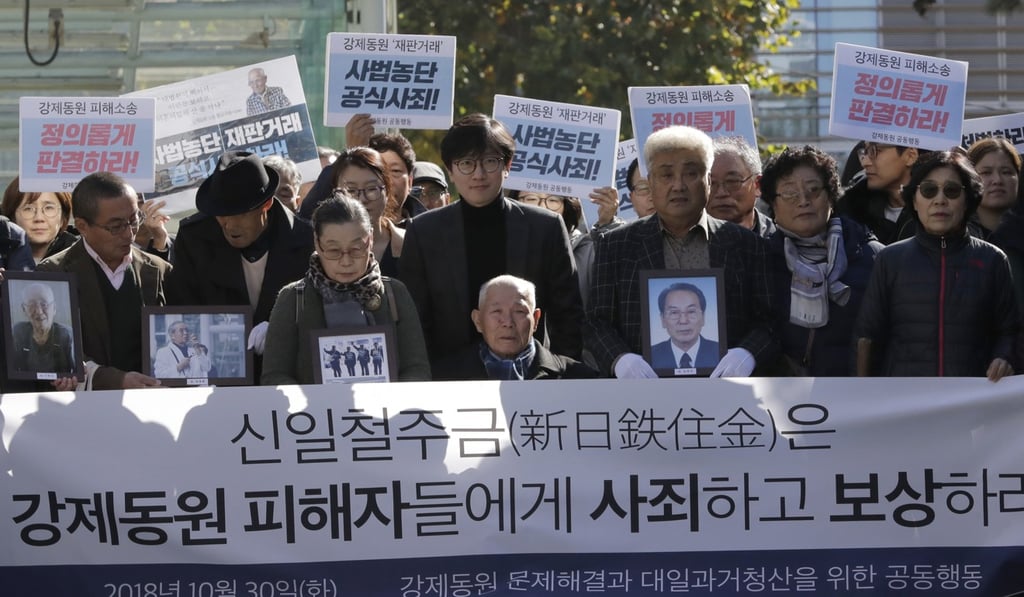Advertisement
North Korea is the only winner when South Korea and Japan spar over historical issues
- A court case triggered the latest row between the East Asian democracies, but decades of animosity have contributed
- The two sides should remember all that unites them, however, and that an escalating dispute means neither wins
Reading Time:3 minutes
Why you can trust SCMP

Korean and Japanese relations have plunged to their lowest depths since the Korean war, and there’s apparently no reconciliation in sight. The governments in Seoul and Tokyo are engaged in a game of dare and double-dare in which they both want to out-threaten the other with hurtful measures.
The Japanese clearly think they have the South Koreans where it hurts, banning the export of key chemical ingredients for semiconductors manufactured by Korean electronics giants led by Samsung.
Tokyo is claiming some of these chemicals are making their way into North Korea, while South Korea’s President Moon Jae-in pursues what Japan’s arch-conservative Prime Minister Shinzo Abe sees as a dangerous policy of reconciliation with a regime that’s never going to relinquish its nuclear warheads and the missiles for hurtling them into Japan.
Advertisement
But obviously there’s much more behind the Japanese export ban.
What a great way to get those Koreans, the Japanese are saying, after all the Koreans have been doing to us over the years. Most recently, the Japanese are upset by Korean court decisions ordering immense Japanese companies, like Nippon Steel and Mitsubishi Heavy Industries, to compensate ageing Koreans who were forced to work for them, basically as slave labor, when they were kids in the darkest days of World War II.
Advertisement

Advertisement
Select Voice
Select Speed
1.00x
